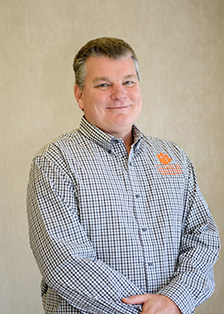
Experiential Learning in Construction Management Education
As an academic Department Chair in Construction Management, one of the most frequent comments I receive from industry supporters is that students need more practical, hands-on experience before they graduate and enter the workforce. I agree. In fact, my experience tells me that experiential learning is becoming increasingly more important in the construction industry due to the expanding knowledge base necessary for success in this field. The idea of experiential learning in higher education is definitely not new. Cooperative education programs have been around since as early as 1906 at the University of Cincinnati (Theil, et al, 1997).
I personally participated in cooperative education at the University of South Florida back in 1985. Clemson University’s Center for Career and Professional Development currently engages almost 1,500 students per year in cooperative education under the care of Cooperative Education Director, Dr. Jeff Neal. Clemson students also participate in a variety of less formal internship programs across campus. For example, the Clemson Construction Science and Management (CSM) department curriculum requires that all CSM students complete at least 800 hours of “internship” prior to graduation. This is typically accomplished during two summers, after the sophomore and junior years.
So, why cooperative education as opposed to internship? Actually, there are valid arguments for both, and I believe that each student should be given the opportunity to choose based on his or her specific boundary conditions. I personally believe cooperative education generally provides greater structure and continuity for both students and employers, however, the ultimate benefits of improved professional communication skills, career clarification, and other valuable professional skills can be gained from either of these experiential learning models. My experience with cooperative education allowed me to participate in progressively more challenging assignments during alternating semesters away from campus. After participating in three rotations, I had gained a full year of experience with McCarthy Building Companies, Inc. Those experiences and the contacts and personal references I gained gave me an advantage over others in the job search. I am also pretty sure my academic performance directly improved as a result of my cooperative education assignments. Thus, I am obviously a huge fan of cooperative education.
Whether a student elects to work as an intern during the summers, or chooses to enter a formal cooperative education program, the valuable experience gained has the potential to transform lives by opening up opportunities previously unseen, or simply by clarifying career options. Clemson University’s CSM undergraduate degree program will continue to require a minimum of 800 hours of experiential learning prior to graduation. As Chair of the CSM department, I will also encourage students to consider participating in the Center for Career and Professional Development’s Cooperative Education program.
References: Thiel, Glenn R; Hartley, Nell T. S.A.M. Advanced Management Journal; Corpus Christi Vol. 62, Iss. 3, (Summer 1997): 19-24.
Dr. Jackson can be reached at 864 656.3878 | Email: nmjacks@clemson.edu
Read “Spotlight on Dr. Mike Jackson, Incoming Chair and Professor, Clemson University’s CSM Department” (Aug. 14, 2017).






